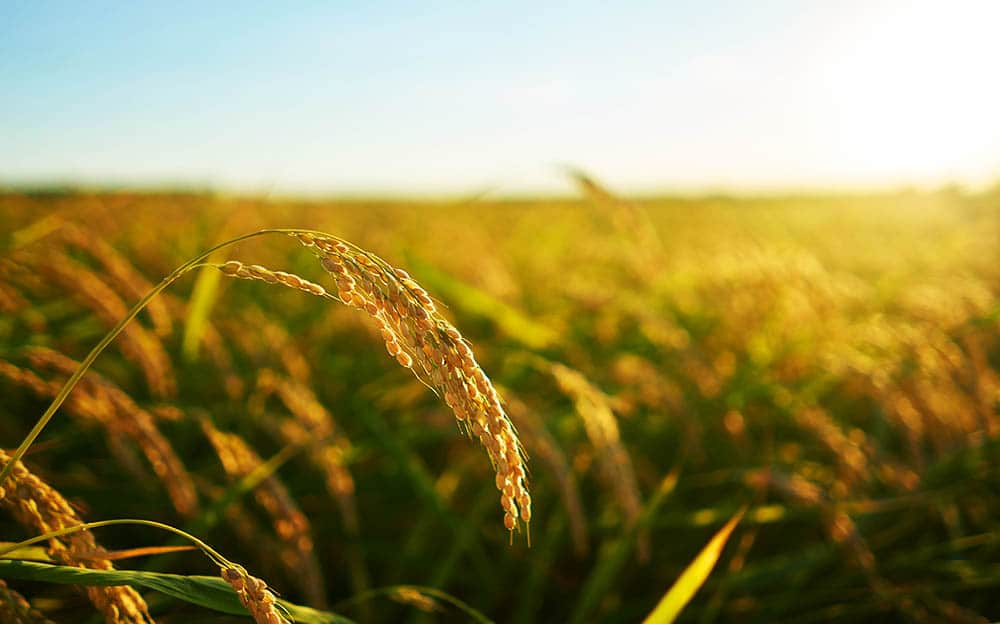Why Organic Farming is the Future of Sustainable Agriculture
As we continue to face global challenges around food security, climate change and environmental sustainability, it is becoming increasingly clear that we need to shift towards more sustainable agricultural practices. Organic farming is rapidly gaining popularity as a more sustainable approach to farming, with numerous benefits that span ecological, economic and social spheres. In this article, we explore five major reasons why organic farming is the future of sustainable agriculture.
1. Reduced Environmental Impact
One of the most significant benefits of organic farming is its reduced environmental impact. This is because organic farming practices prioritize the health of soil, water systems and biodiversity. Unlike conventional farming which relies heavily on the use of synthetic fertilizers and pesticides, organic farming uses natural methods such as crop rotation, green manure, and biological pest control to manage pests and fertilize the soil.
With organic farming, farmers also utilize conservation tillage, which reduces soil erosion, minimizes carbon emissions, and enhances water retention. These practices ensure soil health and soil biodiversity, promoting the growth of crops that are resistant to pests and diseases, making them less dependent on synthetic inputs and more resilient. Additionally, organic farming methods are designed to conserve water resources, reduce pollution and prevent nutrient overload in waterways, which contributes to the protection of aquatic life and freshwater biodiversity.
2. Higher Nutritional Value
Another critical reason why organic farming is the future of sustainable agriculture is the higher nutritional value of organic produce. Studies have shown that organic food contains higher levels of vitamins, minerals, antioxidants and other nutrients in comparison to conventionally grown food. This is because organic soil is guaranteed to be free from synthetic fertilizers and pesticides, giving crops the nutrients to grow naturally and with higher nutritional density.
Furthermore, organic farming ensures that crops are free from harmful residues, thus reducing the adverse health effects of pesticides on humans, wild and domestic animals. Therefore, choosing organic food is not only beneficial to your health but also supports sustainable farming practices that protect public health and the environment.
3. Increased Food Security
Organic farming is also crucial for ensuring food security. Currently, the world faces the challenge of feeding a growing population with finite resources amidst the climate crisis. Conventional agriculture is often criticized for its over-dependence on synthetic inputs, which often leads to the degradation of the natural resources on which it relies. Organic farming addresses these challenges by prioritizing sustainability and fertility.
By enhancing soil fertility with natural methods, organic farming leads to increased production of crops that are more nutritious and resilient. Additionally, organic farming increases biodiversity, which promotes the growth of grains, vegetables, and fruits that are well-adapted to local growing conditions, reducing the risk of crop failure and improving food security.
4. Boosts Local Economies and Smallholder Farmers
Organic farming is a great way to boost local economies, especially in rural areas. Organic farming creates opportunities to generate income, create local employment, and contribute to local economic growth. This is because organic farming is often more demanding in terms of labor requirements, making it more labor-intensive. As a result, organic farmers often employ more laborers per farm, contributing to the creation of new jobs and economic opportunities in rural areas.
Moreover, organic farming is particularly beneficial for smallholder farmers who often lack the capital to invest in synthetic inputs and are restricted by small land holdings. By reducing their dependence on external inputs, organic farming allows smallholder farmers to make the most of their resources, resulting in increased yields and income. This is especially important in developing countries, where the majority of the population relies on smallholder farming for their livelihoods.
5. Promotes Biodiversity and Conservation
Finally, organic farming is vital for biodiversity conservation. Organic farming practices emphasize conservation tillage, the use of crop rotation, and biological pest control measures, resulting in the creation and maintenance of diverse habitats for both flora and fauna.
When compared to conventional farming practices, organic farming has been shown to promote wildlife diversity, including insects, birds and microbes. Organic farms provide habitats for wildlife, including endangered species, that have lost their natural habitat through changes to agricultural practices. By helping to protect biodiversity, organic farming is critical for sustainable agriculture, contributes to the conservation of natural resources, and ensures their long-term availability.
Conclusion
In conclusion, there are several reasons why organic farming is the future of sustainable agriculture. The benefits of organic farming are wide-reaching and will have a significant impact on our food security, environmental sustainability, public health, and local economies. Organic farming is critical for biodiversity conservation, promotes soil health, reduces pollution, and ensures that crops are nutrient-dense.
Moreover, it is essential to note that transitioning to organic farming is not always easy, and it is a process that requires careful planning, investment in skills and technology, investment, and time commitment. However, the impacts of organic farming and sustainable agriculture are long-lasting and are great for future generations. Therefore, it is our responsibility to invest and support organic farming practices, as they are critical for our future and food system.
- Why Venture Capital is Essential for Startups: The Key to Unlocking Success - 28 de mayo de 2023
- Revolutionize Your Business with E-commerce: The Ultimate Guide to Success - 28 de mayo de 2023
- Why Patents are Crucial for Protecting Innovation and Driving Economic Growth - 28 de mayo de 2023
